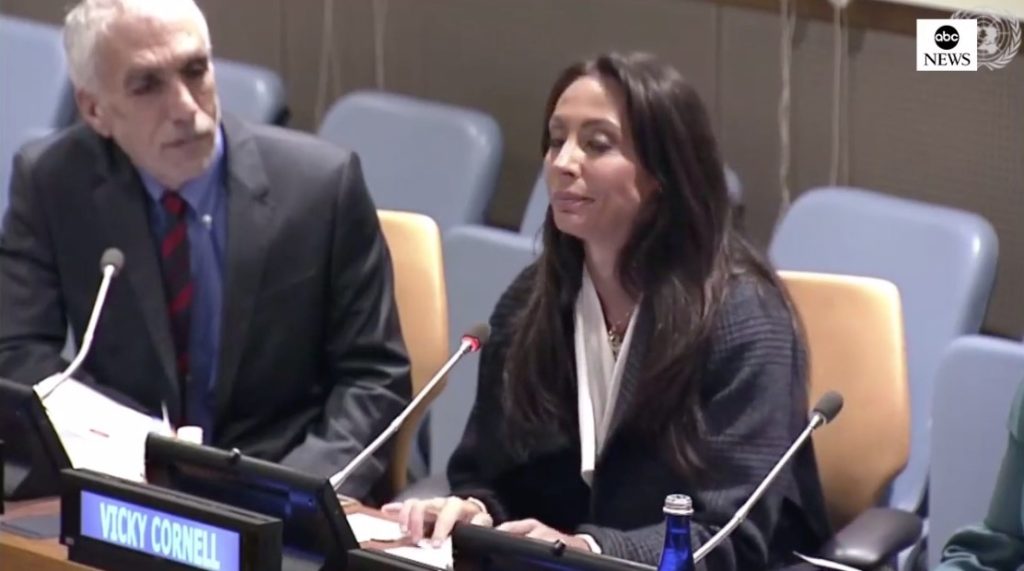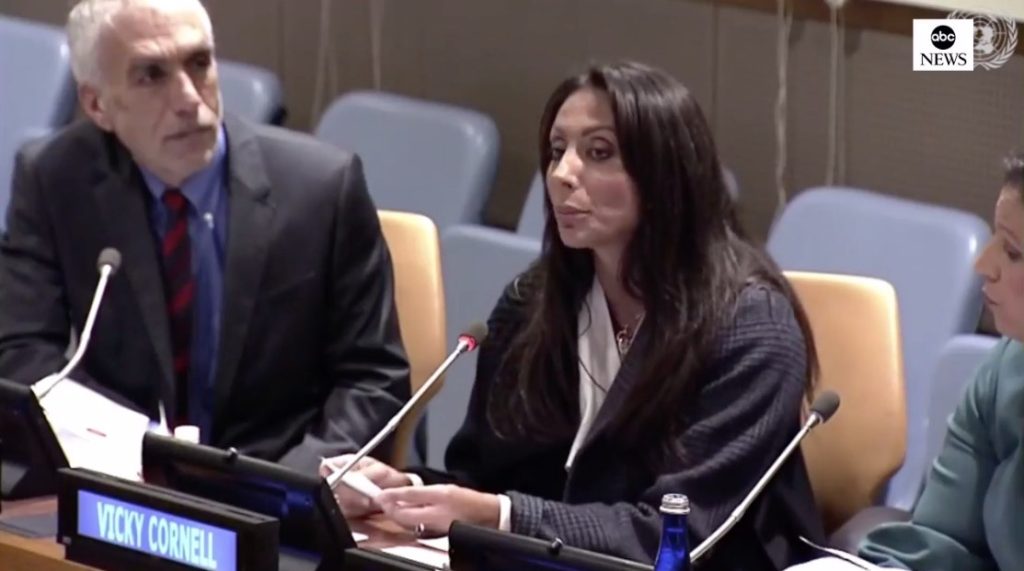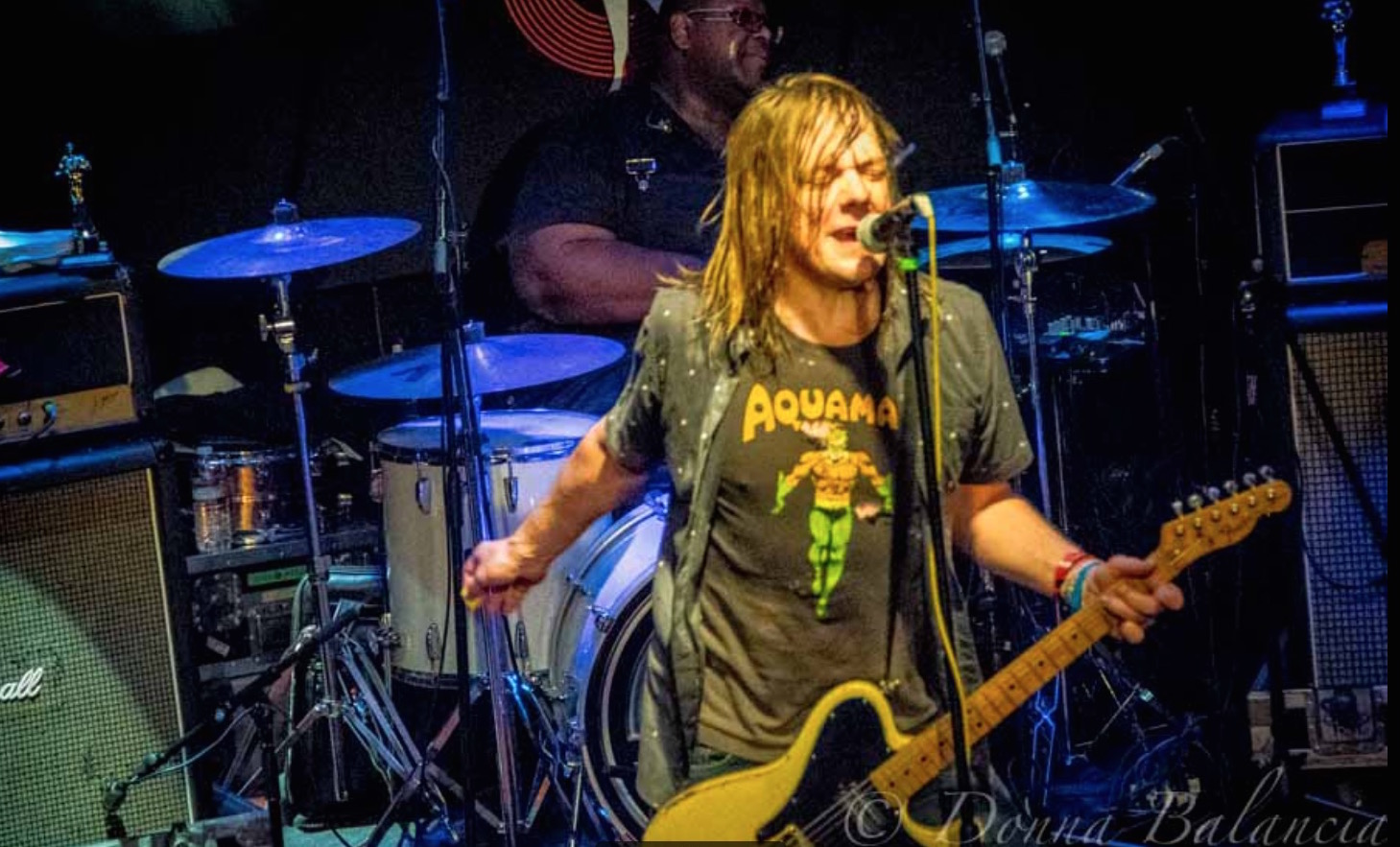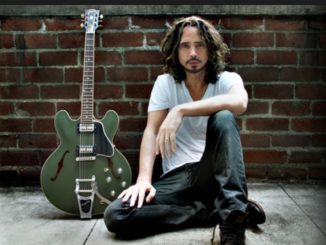
Transcribed by JOHN DALY
The wife of the late Chris Cornell, Vicky Cornell, addressed a panel at the United Nations Tuesday and said addiction needs to come “out of the shadows” to be treated as a national health crisis.
“We have to make addiction part of mainstream medicine,” Cornell said. “We must educate healthcare providers on addiction. There’s no excuse that 8 percent of all medical schools have mandatory curriculum on addiction.”
Vicky Cornell sits on the advisory board of the UN’s Addiction Policy Forum, the goal of which is to provide resources and help those struggling with the disease of addiction. Vicky also started the Chris Cornell scholarship fund at UCLA in 2017.
“As many people know my husband Chris was in recovery from addiction, he struggled with alcohol and opioids but he broke the cycle in 2003,” Vicky said with a quivering voice. “He died 616 days ago. I lost my husband, my children lost their amazing father and the world lost a bright light to an entirely preventable and treatable disease.

“Although I supported my husband in his recovery, there was so much I didn’t know and since his tragic death I have committed myself to learning about brain science and … And to learning about treatment and recovery. I just wish that I only knew then what I know now,” Vicky Cornell said.
“I also want to clarify something. There are so many misconceptions. My husband had a relapse. He had gotten clean and sober by 2003, and then he had a relapse. I’d like to clarify that his death was not inevitable. … I’m saying no, he should not have died. There were no demons that took over.
“Chris had a brain disease called addiction and he also had the unfortunate luck of having a doctor who was not properly trained or educated on addiction. But since his death I’ve learned that most doctors are not trained on addiction. And we all trust our doctors…
“I wish I knew then that a benzodiazopine could hurt his recovery,” she said. “But he was wrongly prescribed and over prescribed this psychotropic drug that is not supposed to be given to those in recovery which caused him to relapse.
“If only we knew the danger both he and I that day when he was being written that very first prescription how addictive that drug is even for low risk individuals … I wish I understood that addiction is a lifelong chronic illness that needs a with a lifelong plan and I wish we had a doctor who would help us with that lifelong plan which I think is desperately needed for families with loved ones who are struggling or who are struggling themselves.
“There’s so much stigma around addiction … and even though we know so much through science and for a long time now, somehow it’s still seen as a moral flaw or behavioral issue. Somehow it’s a choice. It continues to keep this disease in the shadows.

“Personally I was kind of shocked because my husband was a rock star. … When I came out to talk about addiction and my husband’s death, I was attacked by so many. They yell and scream ‘stop calling him a junkie.’ My husband was not a junkie. They preferred me to to say he was ‘depressed.’ But somehow depression is a mental health issue but addiction is a choice. And so I was in fact demonizing him in that way. It would have been easy to dodge the stigma and just chalk it up to depression but that would have been a lie.
Vicky: Chris Cornell’s Death Would Not Be in Vain
“I feel that when my husband died I vowed to him his death would not go in vain. To my children that I would do everything in my power because they are 50 percent their daddy… And to the 21 million people … that I want to help others not fall down the same path, not suffer the same pain and I think that the only way to combat the stigma is move addiction into mainstream medicine and help the world understand that addiction is a health condition, it is a disease that affects the brain it is not a choice.”
Cornell said the foundation supported the launch of an addiction resource center by the Addiction Policy Forum and includes providing clinicians on a 24-hour help line.
“I believe there should be no more shame,” Vicky Cornell said.
Cornell died in May of 2017 at the age of 52. He was found in a hotel room in Detroit and his death was ruled a suicide.
Audioslave with Dave Grohl at Chris Cornell Tribute at The Forum:
Ziggy Marley and Toni Cornell at Chris Cornell Tribute last week:



